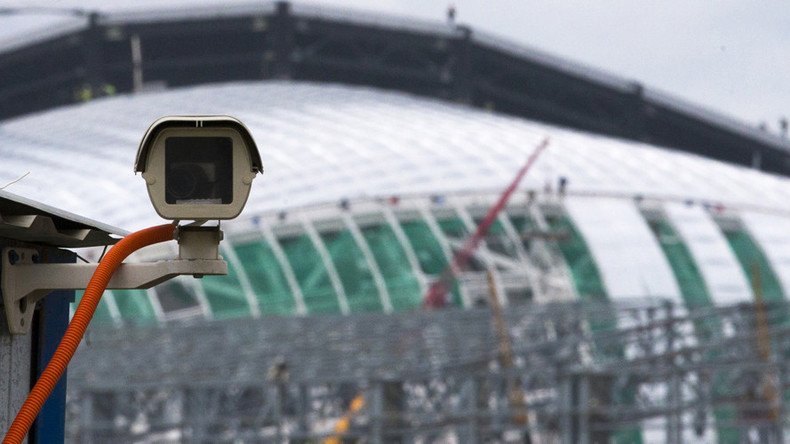Germany drafts law to install face-recognition cameras in public places – media leaks

The German Interior Ministry has drafted a law on video surveillance allowing the installation of automatic facial recognition cameras in public places to tackle rising terrorism threats, local media reported. Critics argue the proposal is nothing but a “placebo.”
A package of massive video surveillance measures proposed by the Interior Ministry was exposed this week by German media.
According to a draft law on “improvement of video surveillance” seen by the Ruhr Nachrichten newspaper, Interior Minister Thomas de Maiziere wants facial recognition cameras to monitor privately-run public areas, such as shopping malls, stadiums and car parks.
The bill, expected to be rubber-stamped by the German parliament in November, cites recent terrorist attacks, namely the shooting spree in a Munich mall as well as a bomb attack in Ansbach, Deutsche Welle reported.
De Maiziere’s proposal follows statements by top security officials who warned that Germany’s transportation system, specifically train stations and airports, is vulnerable to lone-wolf attacks while the police and railroad security services are short of proper equipment and manpower.
Unlike neighboring France and Belgium, Germany has not seen large-scale terrorist attacks. However, German security services believe that members of terrorist groups may have infiltrated the country amid the ongoing refugee crisis, while police admit it is impossible to check the identities of all new arrivals.
The draft has been met with strong opposition from inside the government, with the Social Democrats, junior coalition partners in Chancellor Angela Merkel’s cabinet, accusing de Maiziere and his ministry of “foul play,”Saarbruecker Zeitung reported on Thursday.
According to the newspaper, the Social Democratic Party (SPD) has stopped all consultations on other security-related measures advocated by the Interior Ministry, claiming that the video surveillance draft should have been discussed in the government beforehand.
Other critics of the proposal argued that all-round video surveillance would be of no use in preventing possible assaults.
"This is hardly any more than a placebo to keep the public calm," Konstantin von Notz, Green Party deputy parliamentary leader, was quoted as saying by Deutsche Welle.
"Video surveillance can help to investigate crimes in retrospect, but the technology can't prevent crimes. Only good police work can do that."
Frank Tempel, a Left Party MP, said: “What de Maiziere ignores is that CCTV has helped no one so far.”
READ MORE: Half of Americans in ‘virtual lineup’ face-recognition police programs – study
However, at least one train station will be equipped with all-round face-recognition cameras to test the system’s capacities, according to an official request for information from the Green Party, cited by the Handelsblatt newspaper.
Responding to the request, the Interior Ministry admitted that it is in talks with the criminal police and rail operator Deutsche Bahn “to test the use of smart video analysis technology in one pilot train station,” adding that “operational capacity” of the surveillance gear depends on results of the trial run.
The reports come just one week after the German parliament passed legislation giving the country’s foreign intelligence agency, the BND, extended powers to spy on EU agencies and act when there is "a perception of foreign and internal political and security importance.”













